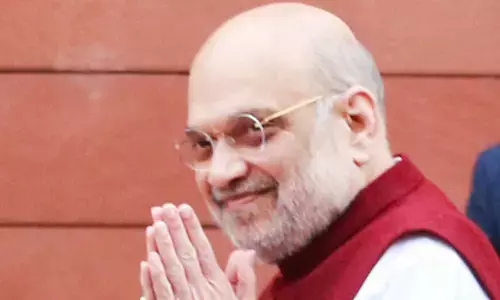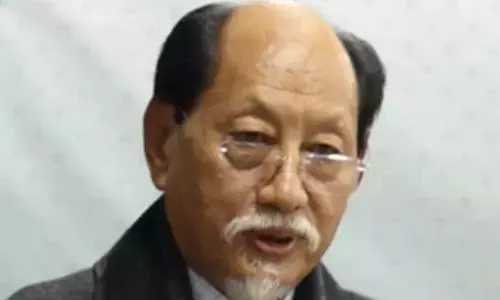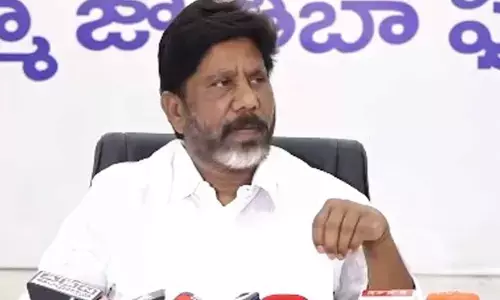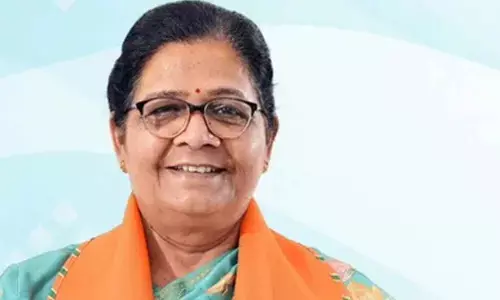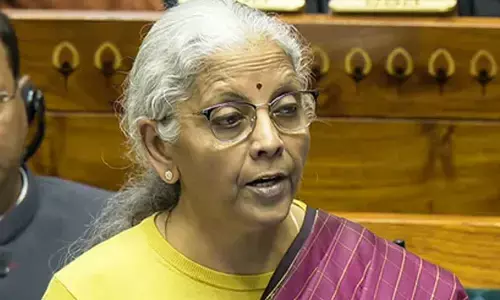Geopolitical indicators India cannot ignore
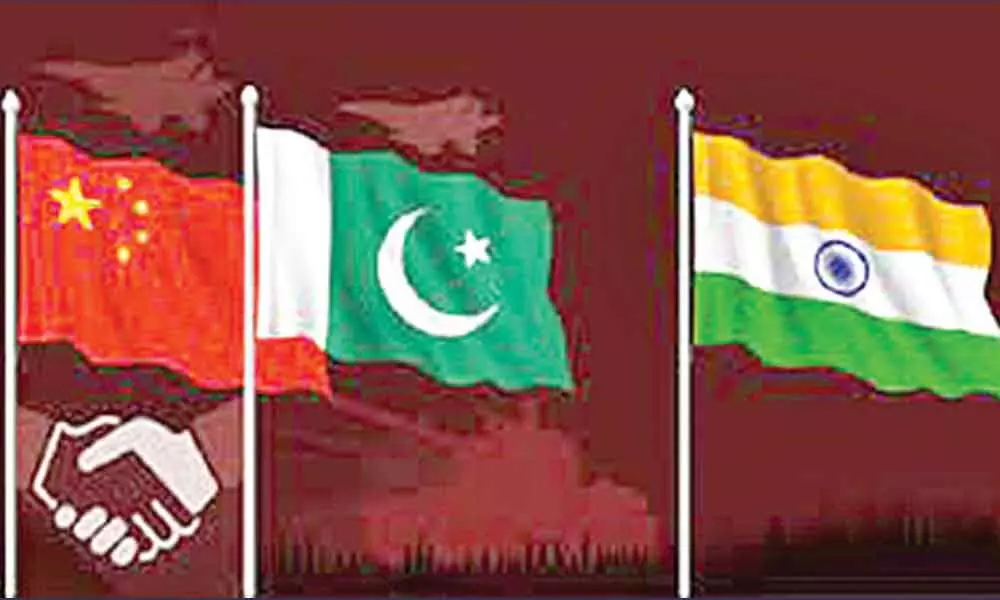
The long speech of President Xi Jinping at Tiananmen Square in Beijing on the occasion of the CPC's centenary celebration on July 1 and the address of US President Joe Biden to the joint session of the Congress earlier on April 29 provide significant inputs on the contemporary global scene that was marked by a developing bipolarity between US-led West and the residual of the world of Communism of the Cold War era now led by China.
The long speech of President Xi Jinping at Tiananmen Square in Beijing on the occasion of the CPC's centenary celebration on July 1 and the address of US President Joe Biden to the joint session of the Congress earlier on April 29 provide significant inputs on the contemporary global scene that was marked by a developing bipolarity between US-led West and the residual of the world of Communism of the Cold War era now led by China.
In that equation, the present profile of Pakistan is important for India in determining the latter's strategic framework. The two Presidents were expansive about defining their domestic and international policies that makes it easy to identify the thrust areas of their future approach and have an idea of how in their own ways the two countries were visualising their role as a superpower.
Highlight:
In the prevailing global scenario, India is required to be on the side of the US as a leader of the democratic world against an advancing China and be an active member of QUAD, maintain strong bilateral friendship with Russia, insist on having a place on Afghan round table, deal with Pakistan with a strong hand on LOC and develop the capability of stretching China all along LAC in the event of that country indulging in aggressiveness
Pakistan's current strategy is to be on the right side of the Biden regime without allowing any let-up on its closeness towards its 'all weather friend', China. India has all pieces in place to firmly decide not only upon its strategy for South Asia but its long-term approach towards the developing global scenario, as well.
In tracing the history of CPC, Xi put only Mao Zedong and Deng Xiaping on the top and evidently identified himself primarily with these two ideologues. This found reflection in Xi's proposition that 'China transformed itself from a highly centralised planned economy to a Socialist market economy taking the country from isolation to one that is open to the outside world across the board.' He asserted that China leapt to world's second largest economy raising the living standards of people from 'bare subsistence to an overall level of moderate prosperity'.
This confirms the view that Xi Jinping continues to pursue the economic route to becoming a superpower while maintaining a strong military position. On Hong Kong, he accepted 'one country two systems' but on Taiwan he reiterated the call of 'one China' secured through 'peaceful reunification'.
President Joe Biden's address to the Congress on the completion of hundred days of his administration also devoted more to the US domestic scene. On the world scene, Biden christened President Xi Jinping of China as an autocrat who was 'earnest about becoming the most significant and consequential nation in the world' and warned China that while US welcomed competition it will do all to defend America's interests across the board – he referred to unfair trade practices, theft of intellectual property and military defence of Indo-Pacific in this regard.
Both President Biden and Xi Jinping used the term 'rebuilding our nation' and 'rejuvenation of Chinese nation' as their respective theme points giving the impression of a preoccupation with their domestic scenario. However, their speeches also suggested a slow but definite ideological polarisation between them as world powers, based on the rival systems of a pluralistic democratic order on one hand and a one-party dictatorship, on the other. Xi Jinping did not mention India and Biden was silent on Sino-Pak military alliance.
The Chinese President glorified the role of PLA that is now strengthened in Ladakh sector under an independent General – this can be read as a message for India. President Biden talked of 'terrorism having metastasized' – saying that Al Qaeda and ISIS were still there – but he made no reference to Pakistan whose patronisation of Islamic extremists was globally acknowledged.
It can be presumed that the Biden Administration attached an overriding importance to Pakistan as a helpful factor in dealing with Afghanistan. This should cause India some degree of concern.
It is in this context that the recent TV interview given to a prominent Afghan journalist – in which Shah Mahmood Quraishi, the foreign minister of Pakistan, spoke at length about Afghanistan – becomes important. Saying that Pakistan desired a stable, peaceful and sovereign democratic Afghanistan for regional connectivity and economic progress, Quraishi significantly remarked that it was for the people of Afghanistan to decide what will be the ruling dispensation there, adding that Pakistan will deal with the government so established at Kabul.
He highlighted the role of Pakistan in facilitating the peace process at Doha between US and Taliban and participating in Afghan reconstruction and regretted that the Afghan leadership was not able to sit with all others and work out a peaceful resolution. The Pak foreign minister warned that President Ghani must learn to reconcile with Taliban if Afghanistan was to be kept from heading into a civil war.
If in President Biden's scheme of things Pakistan's strategic partnership with China is of no consequence for the US in terms of the American global objectives, then the Sino-Pak axis that opened up the prospect of these two hostile neighbours planning some joint acts of aggression on our borders is a threat which India would have to face alone and plan for it. The axis would create difficulties for India in Afghanistan and add to India's concerns in Kashmir.
Quraishi dismissed the June 24 meeting of the Prime Minister with the leaders of mainstream parties of Kashmir – the first such interaction since the annulment of Art 370 of the Constitution by the Indian Parliament – as a PR exercise and alleged that the Prime Minister did not give any reply to the demand of the Kashmir leaders for restoration of full statehood to their state.
He claimed that US had appreciated Pakistan for its role in the Afghan peace process. Pakistan has been trying to create a lobby against India's action in Kashmir in the UN and in the Muslim world – Turkey, Malaysia and Qatar have spoken against India on Kashmir.
President of UN General Assembly – Volcan Bozkir – who is from Turkey, told pressmen at Islamabad some time back that Pakistan should take up the case of Kashmir 'more strongly' at UN. He asked all concerned to refrain from changing the status of the 'disputed territory of Kashmir.'
In the prevailing global scenario, India is required to be on the side of the US as a leader of the democratic world against an advancing China and be an active member of QUAD, maintain strong bilateral friendship with Russia, insist on having a place on Afghan round table, deal with Pakistan with a strong hand on LOC and develop the capability of stretching China all along LAC in the event of that country indulging in aggressiveness.
While diplomatic support of the friendly countries would be expected, India has to muster military capability to deal with the Sino-Pak axis, particularly in the Ladakh sector on its own.
(The writer is a former Director of Intelligence Bureau)








